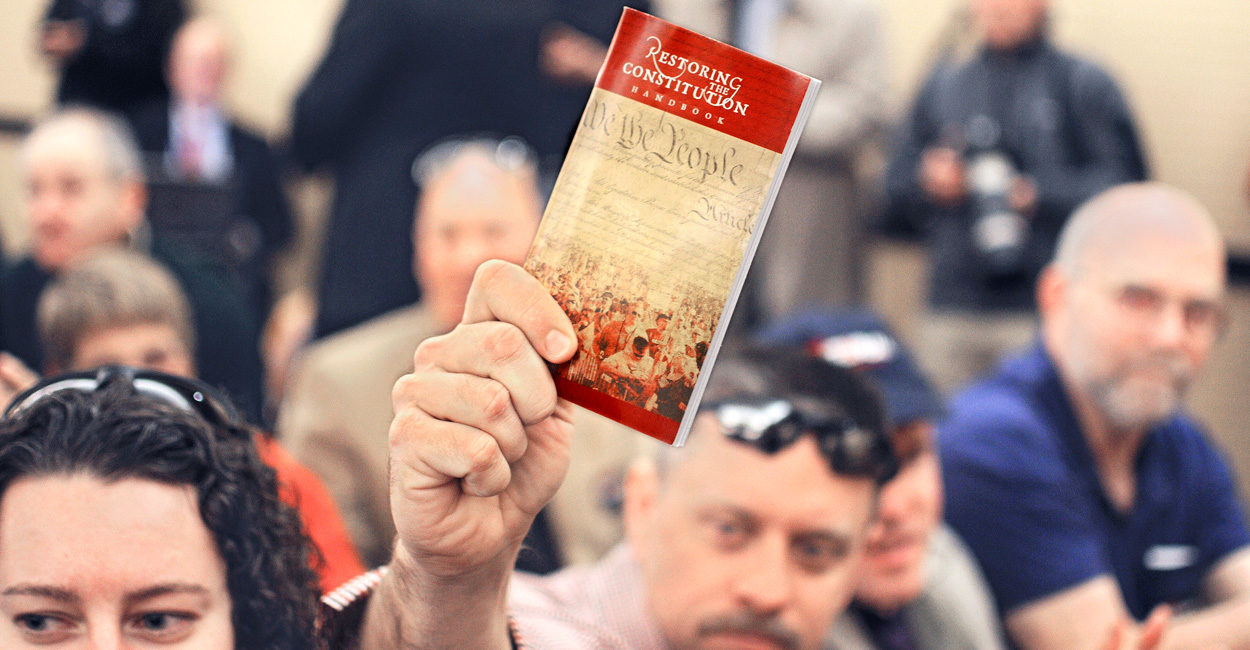WSJ November 3, 2018
When Local Lawmakers Won’t Take No for an Answer
By Paul Jacob | 679 words
For an example of what populists mean when they say politicians sometimes refuse to listen to voters, look no further than the consolidated government of Nashville and Davidson County, Tenn. Twenty-four years ago, voters there passed a ballot initiative limiting the 40 members of the Metropolitan Council, the county’s legislative body, to no more than two consecutive four-year terms in office. The vote wasn’t close; term limits won by a margin of more than 3 to 1.
But that didn’t settle the question—not for the Metro Council’s membership, anyway. Two years later, in 1996, the council put a charter amendment on the ballot to replace the two-term limit with a three-term limit.
“The public has spoken on this issue and spoken very loudly,” Councilman Lawrence Hart warned as his colleagues considered the measure. Still, council members hoped that voters, as a report in the Tennessean newspaper put it, might “vote in favor of a three-term limit—especially if they don’t realize they are actually extending council members’ time in office.” Not fooled, voters said no.
Undaunted, the Metro Council returned to the subject in 1998. This time they let their politician flags fly unapologetically, placing a measure on the ballot to abolish the council’s term limits altogether. Term-limit supporters filed a lawsuit challenging the ballot wording, charging that the way the council wrote the ballot question was “deceptive.” A Davidson County judge agreed, ordering the measure removed from the ballot until the Metro Council changed the wording. Nashville voters again rejected the council’s gambit, 62% to 38%.
Four years later, in 2002, even the editorial page of the Tennessean—which had long opposed term limits—warned that “continuing to raise the issue, despite the voters’ consensus, would be an act of arrogance.” Nonetheless, the council insisted that Nashvillians vote for the fourth time in eight years on a measure to increase the limit from two terms to three and extend council members’ possible time in office from eight years to 12.
One letter to the editor in the Tennessean asked: “What part of ‘no’ doesn’t the Metro Council understand?” Voters defeated the proposal once again.
In 2008, the Metro Council proposed a ballot measure to establish that service for more than half a term in office would count as a full term, and that district councilman and councilman-at-large constitute two separate offices. Nashville voters consented, proving that they are sophisticated enough to understand nuanced distinctions surrounding term limits. Metro Council’s politicians could have chosen to get the message. They did not.
In 2015, the Metro Council took a new approach; they placed two measures on the ballot to extend their terms in office by four years. The first measure was the familiar one: increase the number of consecutive four-year terms to three from two. The second measure included a twist: extend term limits in exchange for reducing the size of the Metro Council from 40 to 27 members. “You have to give the public something,” quipped legislator Emily Evans, who was herself about to be termed out.
On Election Day, voters said no again, rejecting both attempts to water down the council’s limits.
So, when will Nashville politicians finally learn their lesson? Maybe Tuesday, when yet another ballot question on term limits goes before voters. If you’re counting, this will be the seventh time Nashvillians have been asked to reconsider their 1994 vote. The current Metro Council—which voted 37-2 to place this year’s measure on the ballot—is trying a thoroughly modern political ploy this time: the term-limit expansion is inexplicably tied to a proposal to adopt “gender neutral terms” (i.e. “council member” instead of “council man”) for those elected to serve on the council.
Since the politicians of the Nashville-Davidson Metro Council seem determined to ask voters the same question over and over until they get the answer they want, perhaps it’s time to restrict council members’ power to propose new ballot initiatives related to term limits. Let changes instead come only from citizen-initiated ballot measures.
Mr. Jacob serves on the board of directors of U.S. Term Limits.■

